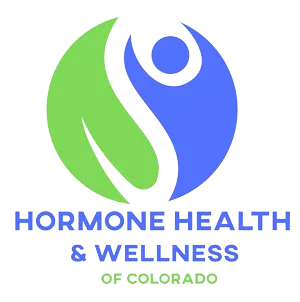
Visceral Fat: Why it Matters
Understanding Visceral Fat: What It Is and Why It Matters
Visceral fat is a term often thrown around in health and wellness conversations, but what exactly is it, and why should you be concerned about it? This deep-seated fat, stored within the abdominal cavity and surrounding critical internal organs like the liver, pancreas, and intestines, plays a significant role in overall health. Unlike subcutaneous fat, which lies just beneath the skin, visceral fat is metabolically active and can significantly impact your well-being.
What Is Visceral Fat?
Visceral fat is the fat that accumulates around your internal organs. While a certain amount is necessary to cushion and protect these organs, excessive visceral fat can be detrimental. Unlike the fat you can pinch, visceral fat isn’t visible, making it more challenging to identify without specific tools or tests.

How Does Visceral Fat Impact Health?
Excess visceral fat has been linked to numerous health risks and chronic diseases. It’s considered particularly harmful because it’s metabolically active, releasing inflammatory substances and hormones that can disrupt your body’s normal functions. Here are some conditions associated with increased visceral fat:
Heart Disease: Elevated visceral fat contributes to higher levels of LDL cholesterol and triglycerides, increasing the risk of heart disease.
Type 2 Diabetes: Visceral fat can impair insulin sensitivity, a hallmark of diabetes.
Hypertension: Excess visceral fat often correlates with higher blood pressure levels.
Certain Cancers: Studies suggest a link between visceral fat and cancers such as colorectal cancer.
Fatty Liver Disease: Visceral fat can contribute to the development of non-alcoholic fatty liver disease (NAFLD).
Inflammatory Conditions: The inflammatory substances released by visceral fat can lead to systemic inflammation, affecting overall health.

Visceral Fat in Men vs. Women
Men and women tend to store fat differently due to hormonal and biological differences. Men are more likely to accumulate fat in their abdominal region, which often leads to higher levels of visceral fat. Women, particularly before menopause, tend to store fat in their hips and thighs. However, after menopause, hormonal shifts can lead to an increase in visceral fat in women as well.
These differences mean that men may be at higher risk for certain conditions like heart disease at an earlier age, while postmenopausal women may experience an increased risk of diseases associated with visceral fat accumulation.

How to Evaluate Your Visceral Fat Levels
Understanding your visceral fat levels is a crucial step in managing your health risks. One effective way to assess this is through InBody composition testing, which provides detailed insights into your body composition, including visceral fat levels. By identifying your visceral fat distribution and comparing it to healthy benchmarks, you can take proactive steps to manage your health.
At Hormone Health and Wellness of Colorado, we offer InBody composition testing to help you evaluate your risk for conditions linked to excessive visceral fat. This advanced tool not only measures visceral fat but also tracks changes over time, empowering you to monitor your progress as you work towards better health.

How to Reduce Visceral Fat
If your InBody results show concerning levels of visceral fat, don’t worry—there are steps you can take to address it:
Adopt a Healthy Diet: Focus on whole, nutrient-dense foods, and minimize processed and sugary foods.
Exercise Regularly: Incorporate both aerobic activities and strength training to burn fat and build muscle.
Manage Stress: Chronic stress can contribute to fat accumulation, so explore stress-reduction techniques like meditation or yoga.
Get Adequate Sleep: Poor sleep quality is linked to increased visceral fat.
Utilize tools like Emsculpt NEO: This FDA-approved, non-invasive procedure burns fat and builds muscle simultaneously. Learn more about it here.
Take Control of Your Health Today
Visceral fat might be hidden, but its effects on your health are far-reaching. Understanding and managing it is essential to your overall well-being. Schedule your InBody composition test at Hormone Health and Wellness of Colorado today to get a clear picture of your visceral fat levels and take the first step towards a healthier you.
Your health is worth it—let us help you on your journey to balance and vitality!


